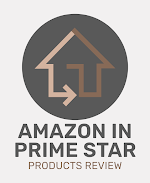According to findings from a previous research of breast cancer survivors in China and the United States, eating more than 10 milligrams of the isoflavone, a substance present in soy, per day lowers the risk of cancer recurrence. The cause is because the human body contains both alpha and beta estrogen receptors. The risk of breast cancer may increase if a substance binds to the alpha receptor; binding to the beta receptor, where isoflavones preferentially bind, appears to have the reverse effect.
A recent study that examined a sizable, ethnically diverse group of breast cancer patients living in North America and found that a higher dietary intake of isoflavone was associated with a 21 percent reduction in mortality from all causes supported the protective properties of isoflavones. The study was published in the journal Cancer in March 2017. It is significant to highlight that only women with tumors that lacked hormone receptors and those who did not receive hormone therapy for their breast cancer had the lower mortality associated with higher isoflavone intake. Trusted source ¹ ²
Try substituting soy milk for cow milk in your morning cereal or mix a smoothie with soy milk and your favorite fruits to get a little bit more than 10 milligrams of isoflavone from one cup of soy milk.
However, if you have hormone-receptor-negative breast cancer or have undergone hormone therapy, talk to your oncologist or the nutritionist at your cancer treatment facility if you have any concerns. Depending on the type of tumor you have and your general health, your medical staff can advise you on whether you should limit or completely avoid soy.
Various contradicting reports concerning soy are circulating: Is it beneficial? Is there any risk? Why do some individuals claim that eating isn’t okay if it is?
Some of the misconceptions are caused by the possibility of different findings between human and animal studies. In several animal experiments, rats treated to high doses of isoflavones—compounds present in soy—showed an elevated risk of developing breast cancer. This is believed to be the case because soy’s isoflavones, which the body can employ to mimic estrogen, have been linked to a higher risk of developing certain types of breast cancer.
However, rodents digest soy in a different way than humans do, and similar outcomes in humans have not been observed. Additionally, isoflavone doses in animal research are substantially higher than those in human trials. In fact, soy’s estrogen actions appear to either have no effect at all or lower the incidence of breast cancer in human trials (especially in Asian countries, where lifelong intake is higher than the US). This might be the case because isoflavones have the ability to block blood levels of stronger natural estrogens.
The research to date does not indicate any risks associated with soy consumption in humans, and the health advantages seem to outweigh any potential risks. In fact, there is mounting evidence that traditional soy foods like tofu, tempeh, edamame, miso, and soymilk, especially among Asian women, may reduce the risk of breast cancer. Foods made from soy are great sources of protein, especially when they take the place of other, less healthful foods like red or processed meat and animal fats. Foods containing soy have been associated with lower heart disease rates and may potentially help lower cholesterol.
Soy protein supplements.
Less is known about how soy protein supplements and protein powders made from soy affect the development of cancer. This kind of powder is frequently used to produce smoothies or shakes, but it can also serve as the protein source in nutrition bars, some pre-packaged frozen veggie burgers, and vegetarian/vegan meat substitutes. The effects of ingesting these more concentrated types of soy are less well understood by research. Due to their concentrated form, these products theoretically might deliver higher doses of phytoestrogens if used regularly. Although there is not currently agreement on clinical guidelines for soy, many medical professionals support reducing the amount of soy protein powder supplements (soy protein isolate) that patients with hormone-sensitive malignancies consume.
According to Marji McCullough, ScD, RD, strategic director of nutritional epidemiology for the American Cancer Society, soy foods are healthy and safe. But she advises against taking soy supplements – which contain much higher isoflavone concentrations than food – until more research is done.
Soy meals are nutritious and secure, according to Marji McCullough, ScD, RD, strategic director of nutritional epidemiology for the American Cancer Society. However, she recommends avoiding consuming soy pills, which have considerably higher amounts of isoflavones than meals, until additional research has been conducted.





